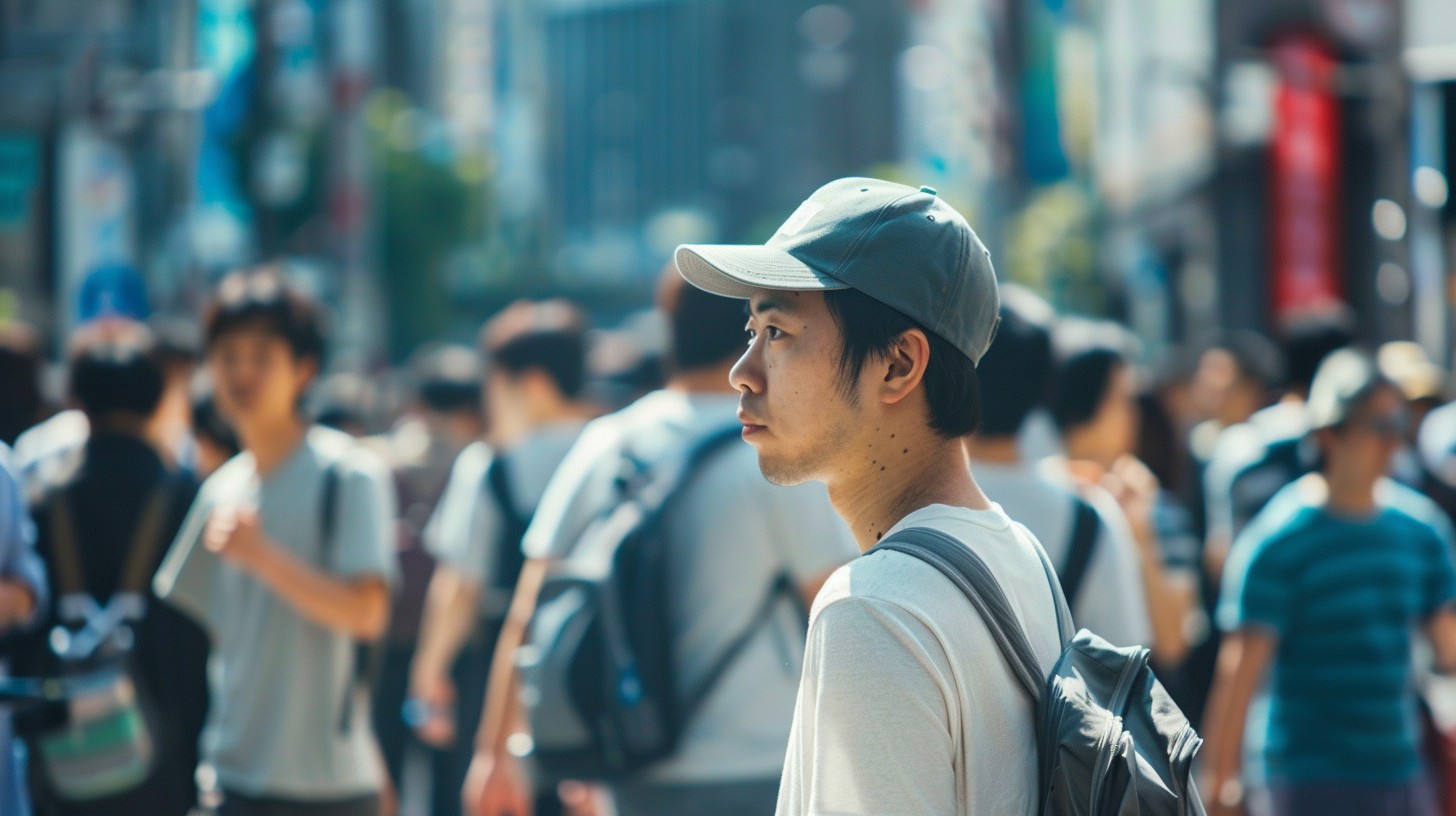Science
Hidden in Plain Sight: Are “Planets” Actually Ancient Relics of the Big Bang?
27 February 2026

Japanese Shoji Morimoto is a man who “does nothing”. In contrast to a productivity-oriented society, he started an activity as a person for hire who does nothing. He dedicates his time to customers for free, as long as they don't expect anything from him.
I’m starting a service called “Do-nothing Rental.” It’s available for any situation where all you want is a person to be there. Maybe there’s a restaurant you want to go to, but you feel awkward going on your own. Maybe a game you want to play, but you’re one person short. Or perhaps you’d like someone to keep a space in the park for your cherry blossom viewing party… I only charge for transportation (from Kokubunji Station) and the cost of food/drink (if applicable). I can’t do anything except give very simple responses – this is the announcement of forty-year-old Japanese Shoji Morimoto.
This is the announcement by forty-year-old Japanese Shoji Morimoto. He first offered his services on Twitter in 2018. A physicist by education, he worked for years in companies and corporations but was unable to find a place for himself in Japanese business culture. Disappointed by the idea of selling one’s skills, he decided to find a way to live in society, not working, but by simply “being.”
The idea of selling time is not new. For ages, men have gone out to the pub to complain to the bartender about their lives over a drink, and women have made arrangements for four-hour sessions of confessions at the hairdresser or beautician. In Asia, and especially in Japan, there are popular services of hosts or hostesses who make people of the opposite sex enjoy their time more pleasantly with their presence. In clubs where they work, one can drink with them, flirt, and sing karaoke, but the relationship does not go beyond that. Meanwhile, in China, it is popular to hire a “partner” for the Chinese New Year. During this period, many young people leave the cities for family homes in the countryside, where parents constantly ask – particularly women – about marriage and children. If they come for holidays with a new boyfriend, they will have peace of mind at least for a moment.
However, there is usually some added value behind each such service. Even if we do not get a drink, sing karaoke together, and just talk, we expect a certain openness from the person we “rent”. Even if all we want is their company, certain social skills, knowledge, and presence are expected. Meanwhile, Morimoto offers none of these things. He tries to be transparent and dull, wearing simple jeans, T-shirts, and a baseball cap and avoids any distinguishing features. When asked what his hobby is, he replies, “None.” He answers longer questions briefly: “I do not know.” He is also not an active interlocutor, and does not continue the dialogue, asking: “And you?” Despite this, he does not lack clients, and Morimoto meets up with mostly three people a day.
We recommend: Family Roots: A Wellspring of Self-Assurance

Morimoto receives many proposals, which he carefully sorts through. He tries not to meet the same people multiple times and avoid repeating experiences, avoids concerts and performances by artists who do not interest him. He rejects any request that would require him to do “anything” – such as helping to bring a washing machine into the flat. Most of the requests are quite simple – going out to a restaurant together, eating dessert at a café. Single people have the opportunity to participate in activities that are typically intended for couples. For example, Morimoto was asked to sit at a client’s house and read a manga to motivate him to study for an exam. He picked up a woman from the airport who dreamed that someone would wait for her in the arrivals hall. He was behind the back of a girl who was confronting her neighbor about clothes falling from the balcony.
Media outlets, to which Morimoto gave interviews (BBC, NYPost), report that he takes JPY 10,000 (about US$ 60) for his services. In his autobiography (Rental Person Who Does Nothing. A Memoir, New York 2023), however, he writes that he does not accept payment, and expects only reimbursement of travel expenses and fees for all tickets, drinks, or food that are part of the meeting. Sometimes he receives gift certificates. He fears that accepting payment might create expectations for him. On the other hand, in the case of volunteering, clients also anticipate the attention, empathy, and availability of the “performer.” Morimoto sets boundaries by choosing only those jobs he feels comfortable with and sticks to the principle of “doing nothing.” For instance, he once left a meeting after being invited to a gala during which other people spoke solemnly about their dreams. Feeling uncomfortable, he decided to leave and sent an apology message.
The simplicity of the tasks Morimoto receives resembles the nature of childhood friendships. Children meet to do something together – play games or read manga. They can sit in silence and spend time together without doing anything specific. Some of the tasks could be done through a computer or a phone app – for example, a request to send a reminder to cut their nails. However, clients seek a connection with another human being. Some ask him to think about them or pray for them. Thanks to his “job” Morimoto discovered that people often do not want to show their weaknesses to their loved ones. Many things are easier to share with a stranger. Sometimes all one needs is someone to be next to them. “Things can be different simply because someone is there. They don’t have to be there, but if they are, something changes”.
We recommend: Being Honorable: Does It Even Mean Anything Today?

The idea of “doing nothing” is so important to Morimoto that he even “wrote” his autobiography in this way. The editor sent him a series of questions, to which the Japanese eccentric answered briefly and in a manner that did not require additional intellectual effort. He drew inspiration from therapist and writer Jinnosuke Kokoroyi, a vocal critic of Japanese culture focused on work and productivity. Kokoroyi was the first to express the view that what should be rewarded is not “doing” but just “being.” Emphasizing that the person themselves is the value and not the skills they can offer to society. Morimoto writes: “I’d like the world to be one where even if people can’t do anything for others, even if they can make no contribution to society, they can still live stress-free lives”. According to him, work is never remunerated in a way that balances the stress associated with it.
Is it possible to do “nothing” and remain a valuable individual for society? And does anyone do “nothing”? Morimoto himself admits that his presence mattered to people who hired him. From their perspective, he is not someone who “does nothing,” but rather a listener, motivator, and sometimes a vessel to which one can pour a little sadness. Many people make use of his services to be able to talk about themselves and not feel compelled to ask him anything or wonder how their “companion” is feeling. It might seem narcissistic, but it is also quite liberating. In Japanese society, which constantly dictates to think about others, it is a great relief to be able to be oneself with someone whose approval is not a concern. Morimoto does not sell the illusion of friendship. He only provides the product that he advertises – his presence. Nothing else.
Morimoto’s hope and belief that people should be valued for their very presence and that everyone should be able to live without the stress related to work resonates particularly strongly in Japan. At the same time, the figure of Morimoto himself is associated with controversy. Doing nothing, especially for free, still requires money. He writes that he supports his family and children thanks to savings from six years ago, but it is more likely that the burden rests on the shoulders of his wife, a professional illustrator. In 2018, Morimoto even decided to separate because he felt a lack of “freedom” due to household duties and child care. In a documentary series about himself, he compared himself to Steve Jobs, claiming that his mission to create new values is so important that he must prioritize it over caring for his children.
We recommend: Is Feminism Anti-Motherhood? Debunking Myths
Translation: Marcin Brański
Polish version: Shoji Morimoto. Człowiek, który oferuje profesjonalną usługę nicnierobienia
Science
27 February 2026



Zmień tryb na ciemny